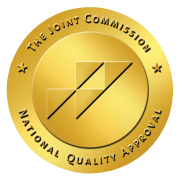Is Mental Illness A Disability?
Mental health is being increasingly recognized as an important and valid factor in our daily lives. As a result, there are many supports and systems in place to assist those who experience some form of mental illness. The American Psychiatric Association (APA) defines mental illness as a health condition that involves changes in emotion, thinking, or behavior. It can refer to a variety of diagnosable mental disorders.
Because of the greater focus on mental health, a big question is “Is mental illness a disability?” Mental illness and disability are far more related than we might think. For those who experience disruptions in their day-to-day activities due to their mental illness or have decreased performance in these activities, mental illness is considered a psychiatric disability.
However, mental health is a spectrum, so each person may experience different levels of impairments in their daily activities. If you or a loved one have a mental illness and or a disability, the information provided here will provide more clarity to the question of “Is mental illness a disability?”
What Is The ADA And How Does It Qualify Psychiatric Disabilities?
 The American Disabilities Act (ADA) has been in place since 1990 to prevent discrimination against individuals with disabilities in the workplace. The ADA classifies a disability as a physical or mental impairment that substantially limits one or more of the major life activities of an individual. This means that any physical or mental condition is protected as a disability if it impacts a person’s capabilities.
The American Disabilities Act (ADA) has been in place since 1990 to prevent discrimination against individuals with disabilities in the workplace. The ADA classifies a disability as a physical or mental impairment that substantially limits one or more of the major life activities of an individual. This means that any physical or mental condition is protected as a disability if it impacts a person’s capabilities.
Mental illness and disability often go hand-in-hand. However, it is important to note that the ADA does not guarantee that a mental impairment is evidence of a disability. Instead, an impairment can be part of a disability if it substantially limits major life activities. A psychiatric disability can include conditions like anxiety, depression, bipolar disorder, schizophrenia, attention-deficit/hyperactivity disorder (ADHD), and beyond. Any of these conditions have the potential to limit a person’s capability to complete daily activities.
Discussing Mental Illness In The Workplace
If you or a loved one have a mental health problem, you have the option to disclose it to your employer. Keep in mind that it is not mandatory to disclose mental health problems to your employer and that it is your choice. However, you may choose to disclose if you are looking to request reasonable accommodation in the workplace. A notice to an employer can look different for everyone and only requires that you clarify that a medical condition is a reason for the request. If you request a reasonable accommodation, an employer can ask for medical information.
Other situations where an employer may ask for medical information include during a survey, once the job is offered if it is asked of everybody, or regarding a significant safety concern regarding one’s ability to complete a task. Any information you disclose can only be used by the employer and cannot be shared with any coworkers or individuals. Additionally, an employer cannot discriminate or use any information you provide against you.
When Is Mental Illness a Disability?
The SSA Blue Book lists various physical and mental conditions that fit the SSA definition of a disability and the criteria a person must meet to receive disability benefits. Representatives from the SSA reference the Blue Book to determine whether someone meets the criteria to qualify for and receive SSDI or SSI benefits.
The Blue Book lists a multitude of mental illnesses and breaks them into 11 categories. The categories listed in the Blue Book are:
 Neurocognitive disorders
Neurocognitive disorders- Schizophrenia spectrum and other psychotic disorders
- Depressive, bipolar, and related disorders
- Intellectual disorder
- Anxiety and obsessive-compulsive disorders
- Somatic symptom and related disorders
- Personality and impulse-control disorders
- Autism spectrum disorder
- Neurodevelopmental disorders
- Eating disorders
- Trauma and stress-related disorders
Depending on the mental illness, you or a loved one will need to meet certain criteria to be eligible to receive disability insurance. The Blue Book documents the medical criteria that you or a loved one must demonstrate for each category in your medical evidence. It also documents what criteria are used for each category to assess how your mental disorder affects up to four areas of daily functioning.
To be eligible for benefits, a condition must result in “extreme” or “marked” limitation in at least two areas of daily functioning. A disability is also supported by evidence proving that it has not improved with medication. The Blue Book helps provide a case-by-case answer to the question of “Is mental illness a disability?”.
Is My Mental Illness a Disability?
As an example, anxiety and depression are two common mental illnesses and can be considered a disability by the Social Security Administration (SSA). However, it can be difficult to receive benefits for anxiety or depression disorders since it is challenging to document the degree and everyone has a different experience, making the evidence subjective. This means that it is important to have documentation from a physician and mental health professional to demonstrate your history of the disorders.
The SSA specifies that the medical impairment must have prevented an individual from being able to work. As a result, medical documentation should also demonstrate how anxiety or depression disorder has affected your daily living or employment capabilities.
Receiving Social Security Disability For Mental Disorders
 Once enough evidence has been established, you or a loved one have the option to receive social security disability for mental disorders. Social Security Disability Insurance (SSDI) and Supplemental Security Insurance (SSI) provide options for people with disabilities to receive financial assistance. However, SSDI is only available to those who have been able to work in the past and have contributed to Social Security taxes.
Once enough evidence has been established, you or a loved one have the option to receive social security disability for mental disorders. Social Security Disability Insurance (SSDI) and Supplemental Security Insurance (SSI) provide options for people with disabilities to receive financial assistance. However, SSDI is only available to those who have been able to work in the past and have contributed to Social Security taxes.
Receiving Social Security disability for mental disorders is ultimately like receiving benefits for physical disabilities, although they may be more difficult to prove. In any case, eligibility will depend on the degree to which a disability affects your daily functioning and ability to maintain employment.
You or a loved one can apply for SSDI benefits either online, at an SSA office, or over the phone. You can apply for SSI either in person or over the phone.
For more information on mental illness and disability and the question of “Is mental illness a disability?” contact us here at Lido Wellness Center in Newport Beach, CA. We are committed to providing holistic, comprehensive care and making a positive difference in your life.
References:
https://www.psychiatry.org/patients-families/what-is-mental-illness
https://adata.org/factsheet/health
https://www.ssa.gov/disability/professionals/bluebook/12.00-MentalDisorders-Adult.htm
https://www.eeoc.gov/laws/guidance/enforcement-guidance-ada-and-psychiatric-disabilities


